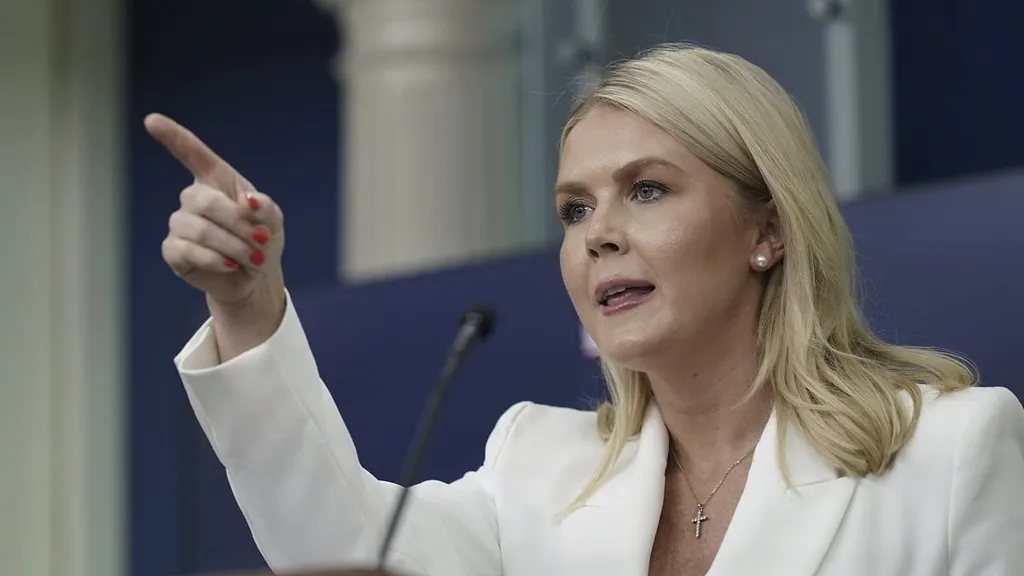By MAX AITCHISON, POLITICAL REPORTER FOR DAILY MAIL AUSTRALIA
Australia should boost its defence spending in line with NATO partners, according to a new diktat from the White House which sets Anthony Albanese on a collision course with Donald Trump, who he is yet to meet.
Members of the North Atlantic Treaty Organisation - which Australia is not a part of - agreed to lift their defence spending to 5 per cent of GDP over 10 years during a summit in The Hague, the Netherlands, this week.
The move was triggered by pressure from the US President who had has long called for European allies to boost their defence spending.
It was a win for Trump who had his ego massaged at the meeting of world leaders when Nato Chief Mark Rutte referred to him as 'daddy'.
But now the US Commander-in-Chief has indicated he expects his allies in the Asia-Pacific - including Australia - to also increase their defence funding.
'Yeah, look, if our allies in Europe and our NATO allies can do that, I think our allies and our friends in the Asia Pacific region can do it as well,' White House press secretary Karoline Leavitt said on Friday.
Ms Leavitt said she would leave the 'specific relations and discussions' for individual countries to Trump.
This means that Albanese may be pressured to increase defence spending if he hopes to secure a carve-out from the punishing tariffs imposed by the US on imports, including a 50 per cent levy on steel and aluminium.
He will also be hoping to shore up the $368bn AUKUS submarine deal, which is currently under threat from a 30-day review by the Pentagon.
The Australian government is weighing up whether to increase its defence funding from 2 per cent of GDP but has so far resisted the 3.5 per cent US Defence Secretary Pete Hegseth has been pushing for.
Spain was the only NATO member not to agree to lift its defence spending above 2.1 per cent of GDP, with Prime Minister Pedro Sanchez arguing it was 'incompatible with our welfare state and our vision of the world'.
This triggered Trump's ire, with the US President vowing to hit Spain with higher tariffs.
'They want a little bit of a free ride, but they'll have to pay it back to us on trade, because I'm not going to let that happen,' Trump said.
Albanese's planned meeting with Trump at the G7 summit in Canada failed to eventuate when the US President had to dash back to Washington to deal with the Israel-Iran crisis.
Many had expected him to go in Deputy Prime Minister Richard Marles place to the NATO summit this week to secure a meeting but instead he stayed in Australian.
Marles risked Trump's ire by insisting Australia would not follow NATO members by lifting its defence spending to five per cent of GDP.
'Look, obviously, a very significant decision has been made here in relation to European defence spending, and that is fundamentally a matter for NATO,' Marles said.
'We've gone through our own process of assessing our strategic landscape, assessing the threats that exist there, and the kind of defence force we need to build in order to meet those threats, to meet the strategic moment, and then to resource that.
'And what that has seen is the biggest peacetime increase in Australian Defence spending.
'Now that is a story which is... understood here and we'll continue to assess what our needs are going forward. And as our prime minister has said, we will resource that.'
Marles did not speak directly with Mr Trump, nor US Defence Secretary Pete Hegseth, despite intensive efforts by government officials to tee up a first face-to-face meeting of an Australian minister with the US President.
Opposition Defence spokesman Angus Taylor called on the government to lift defence spending by at least three per cent of GDP on Friday morning.
'It's essential Australia be in a position to stand on its own two feet alongside our allies like the United States and the UK and that does mean we have to spend more on defence,' he told ABC News.
